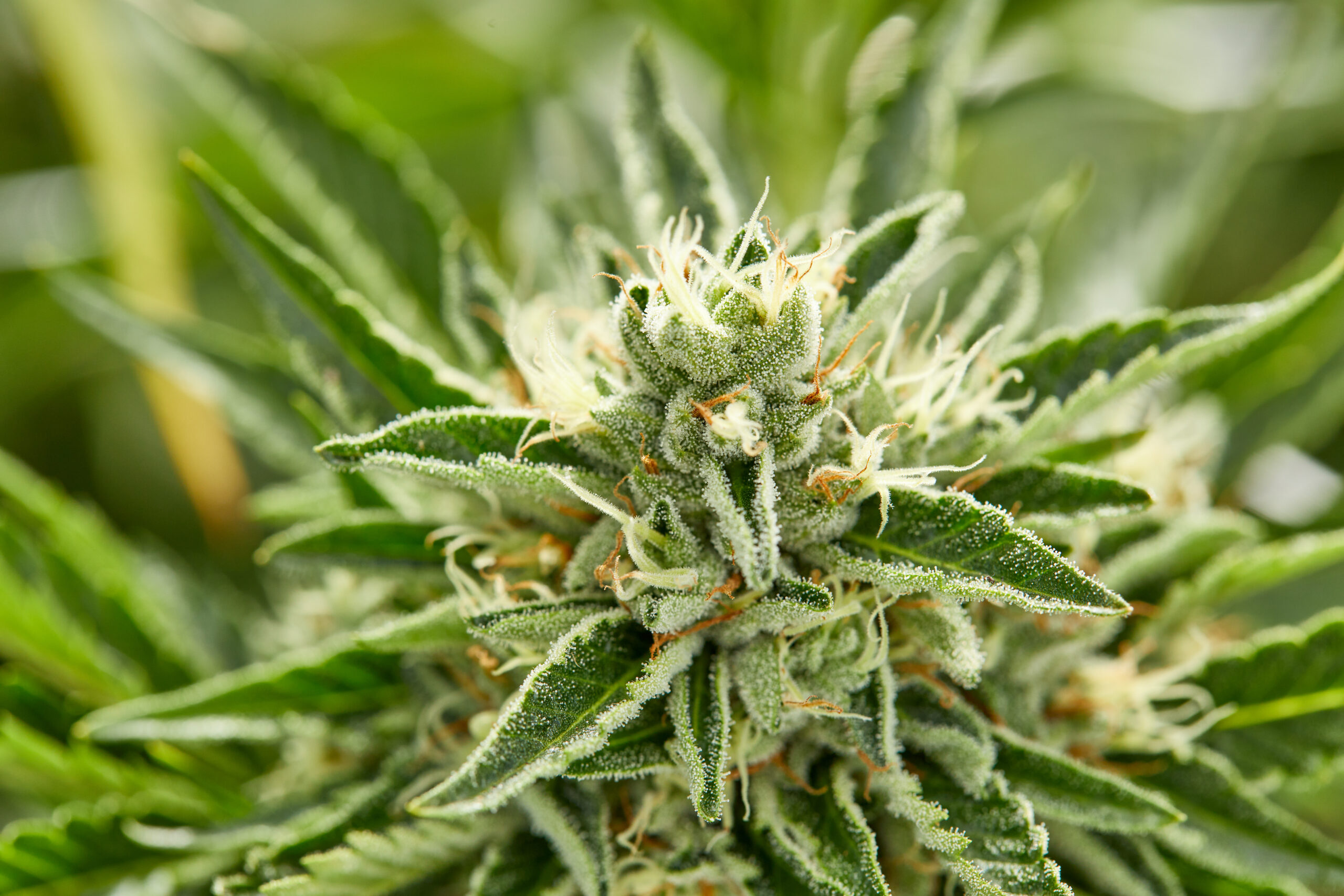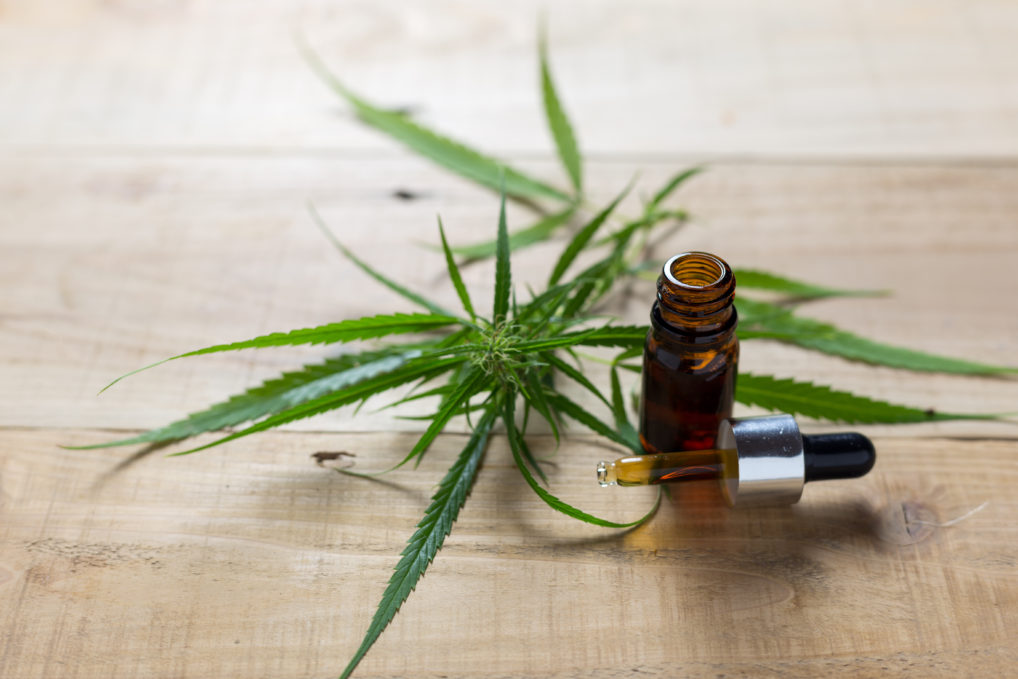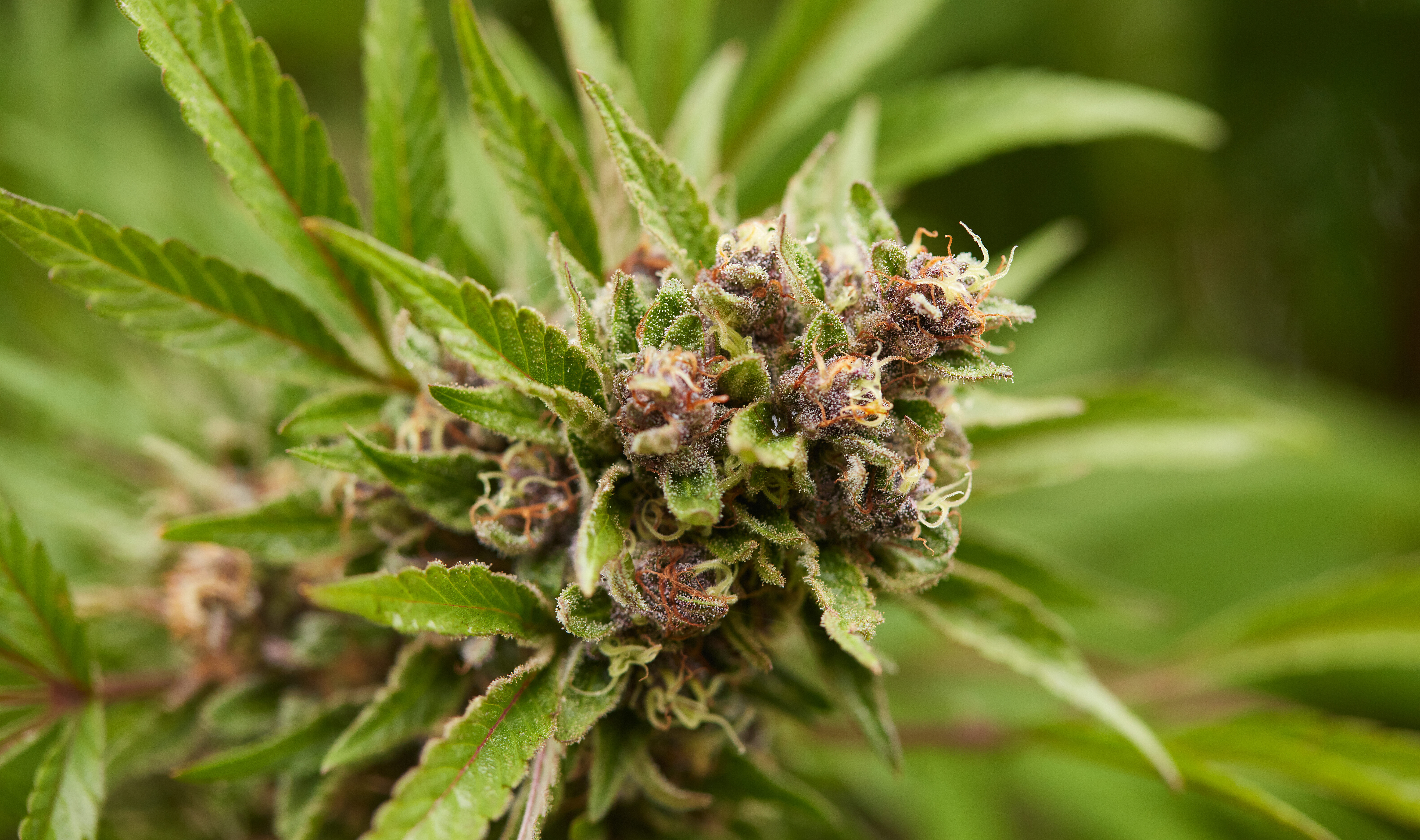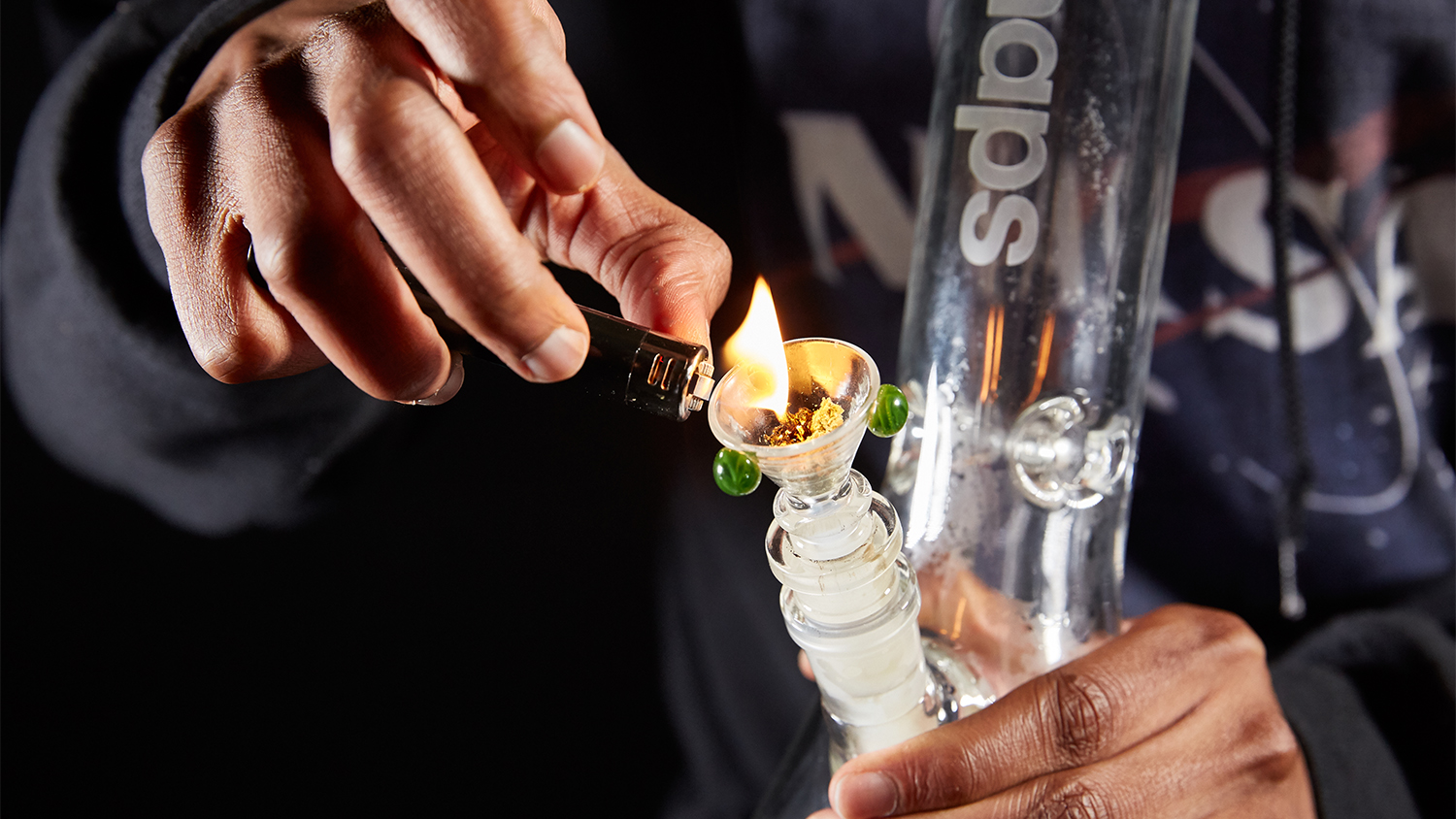THCV, or tetrahydrocannabivarin, is a cannabinoid found in cannabis plants in trace amounts. Learn about THCV, its effects and potential benefits, and how to try it for yourself.
What is THCV?
Like tetrahydrocannabinol (THC), the main intoxicating compound in weed, and cannabidiol (CBD), the primary non-intoxicating compound in weed, THCV occurs naturally in cannabis plants. It's considered non-intoxicating, meaning it does not produce psychoactive effects.
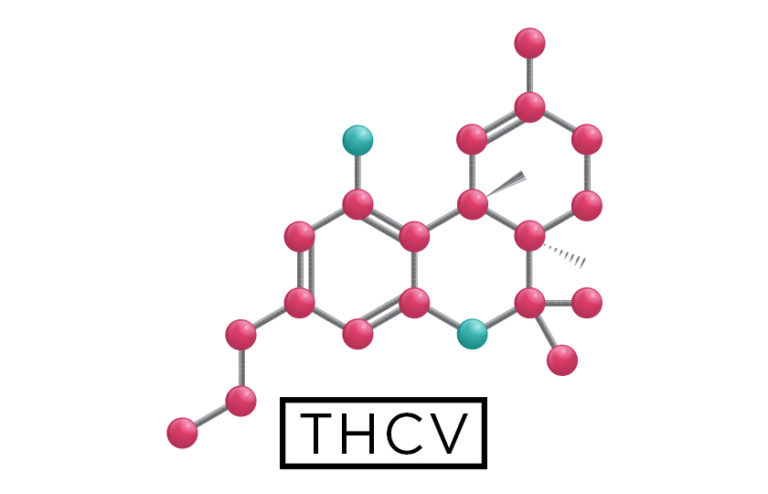 Photo by: Weedmaps
Photo by: WeedmapsImage lightbox

Much less research has been done on THCV, but it is ongoing, and scientists are interested in its potential medical applications. There's reason to believe THCV might offer benefits for weight loss, diabetes, panic attacks, and other conditions, but more research is needed to fully understand its effects and therapeutic potential.
What are the effects and benefits of THCV?
THCV is found in varying concentrations in different cannabis strains, with some strains specifically bred to have higher levels of THCV.
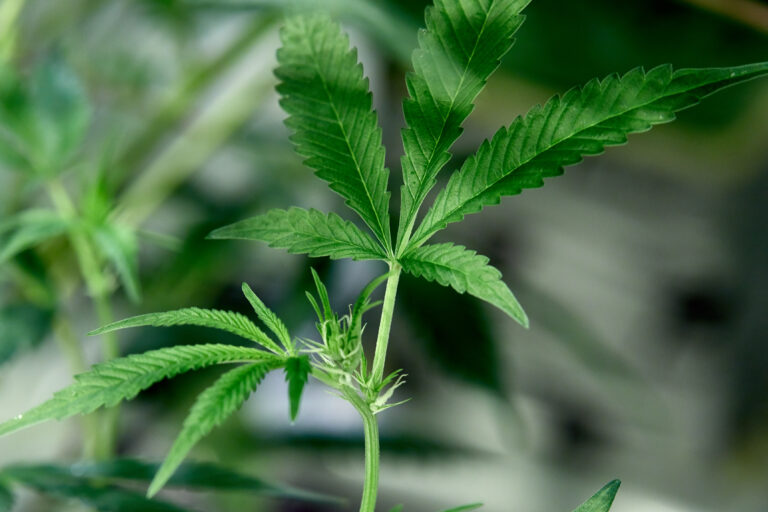 Photo by: Gina Coleman/Weedmaps
Photo by: Gina Coleman/WeedmapsImage lightbox

Explore some of the potential effects and benefits of THCV:
- Reduced appetite: A review of existing studies published in 2020 by the Journal of Cannabis Research reported that THCV provides appetite suppression and glycemic control. The reviewed studies looked at obesity and diabetes in humans and mice. This is likely why THCV has come to be known as “diet weed,” though the research into this effect is ongoing.
- Reduced seizure activity: A 2015 review published in the Journal of Clinical Pharmacy and Therapeutics concluded that THCV may be able to reduce seizure activity in epileptic subjects.
- Anti-inflammatory: A 2010 study in the British Journal of Pharmacology found that THCV reduced inflammation and related pain in mice. For this reason, THCV may also help control acne.
- Bone growth stimulation: THCV is one of several cannabinoids that may promote bone health and healing, according to a study conducted on tissue samples and published in 2007 by Calcified Tissue International.
- Neuroprotective qualities: A 2020 study on mice published in the journal Neurobiology of Disease concluded that THCV had neuroprotective properties that may be useful in treating Parkinson's disease. Another 2020 study in the British Journal of Pharmacology said THCV showed potential in the treatment of neuroinflammation and Huntington's disease.
- Anxiety reduction: THCV might act as an antagonist at CB1 receptors at lower doses, which could reduce anxiety without the intoxicating effects typically associated with THC.
How does the body process THCV?
At low doses, THCV may act as a CB1 receptor antagonist, potentially reducing the psychoactive effects of THC and possibly offering therapeutic benefits such as reduced anxiety, appetite suppression, and potential benefits for diabetes management by regulating blood sugar levels. At higher doses, THCV can act as a CB1 agonist, producing psychoactive effects, although these are generally reported to be different and less intense than those of THC.
Does THCV get you high?
In high doses, THCV may act as a CB1 receptor agonist and produce intoxicating effects. Still, the effect would be much different from that of THC, the compound responsible for the "high" feeling associated with weed.
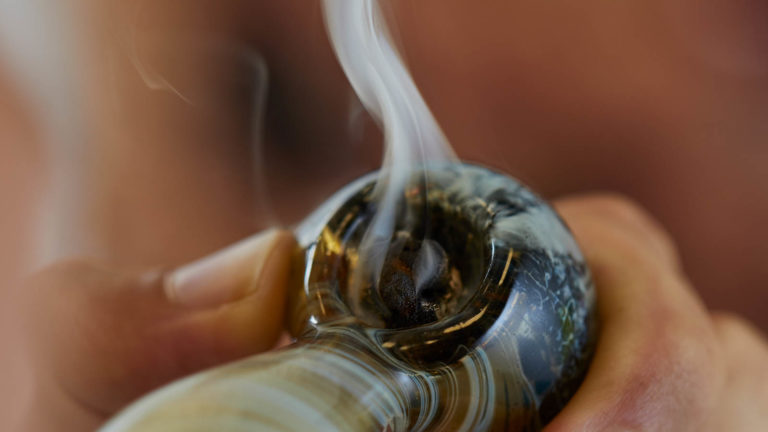 Photo by: Gina Coleman/Weedmaps
Photo by: Gina Coleman/WeedmapsImage lightbox

Many variables go into how THCV might affect you, including the dose, your endocannabinoid system, and the presence of other cannabinoids and terpenes in the cannabis product.
THCV vs THC: What's the difference?
THCV products are becoming more popular as consumers and medical patients seek out their unique effects and potential benefits, and there are many differences between THC and THCV worth noting:
- Effects: THC produces the weed "high" we all know and love, but THCV's effects are more complicated. At low doses, THCV can potentially reduce the intoxicating effects of THC, while at higher doses, it may produce intoxicating effects. Still, THCV's effects are typically less potent than those of THC and may decrease your appetite instead of increasing it.
- Potential benefits: There is ample research to support that THC can help relieve pain, nausea, insomnia, and lack of appetite. THCV, while needing much more research, may help regulate blood sugar levels, reduce panic attacks, and help with Parkinson's disease, among other conditions.
- Potential risks: When consuming THC, there is a risk of overconsuming and experiencing adverse side effects like anxiety, dry mouth, and an elevated heart rate. The primary risk associated with THCV stems from the limited research on its long-term effects on human health.
- Molecular structure: THCV and THC interact with your body's endocannabinoid system in different ways thanks to their slightly different chemical structures.
- Availability: As the most abundant cannabinoid in cannabis and a regulated drug in several US states, THC is easy to come by. THCV, on the other hand, naturally occurs in much smaller quantities in certain strains only. THCV also exists in a legal grey area, which makes it harder to confirm the concentration of the compound in unregulated products.
Types of THCV products
While your options may be more limited than THC and CBD products, there are still several types of THCV-focused products available:
High-THCV cannabis strains
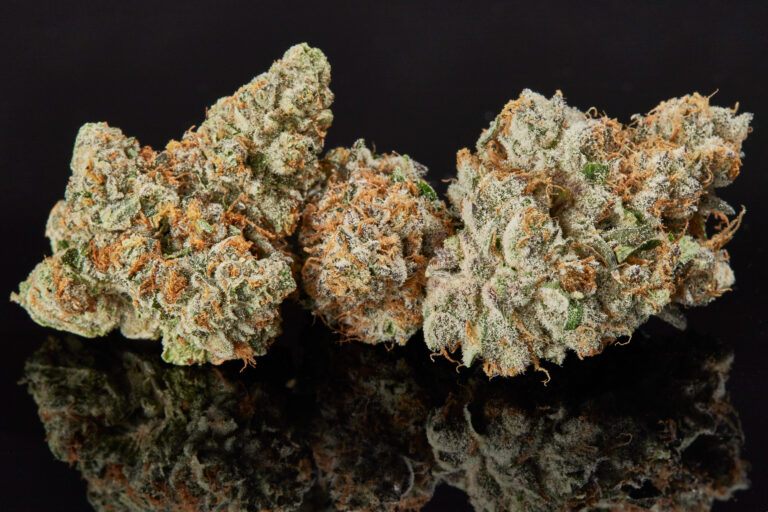 Photo by: Gina Coleman/Weedmaps
Photo by: Gina Coleman/WeedmapsImage lightbox

Some specially bred cannabis strains have greater concentrations of THCV. Ask your budtender about African sativa strains and other THCV-rich cultivars, and be mindful of the THC levels they are likely to have.
THCV edibles
THCV-infused gummies, chocolates, and candies offer a discreet and convenient way to consume THCV. However, be warned that the effects last longer and take much longer to kick in than inhalation methods.
THCV capsules
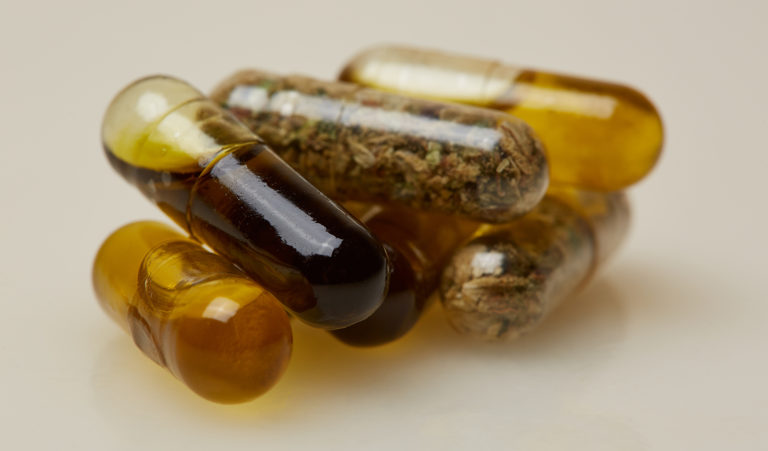 Photo by: Gina Coleman/Weedmaps
Photo by: Gina Coleman/WeedmapsImage lightbox

With THCV capsules, the effects and onset times are similar to edibles, so exercise caution.
THCV oil tinctures
THCV tinctures allow you to dose sublingually (under the tongue) for fast absorption. You can also add it to food or beverages for an experience akin to edibles.
THCV vapes
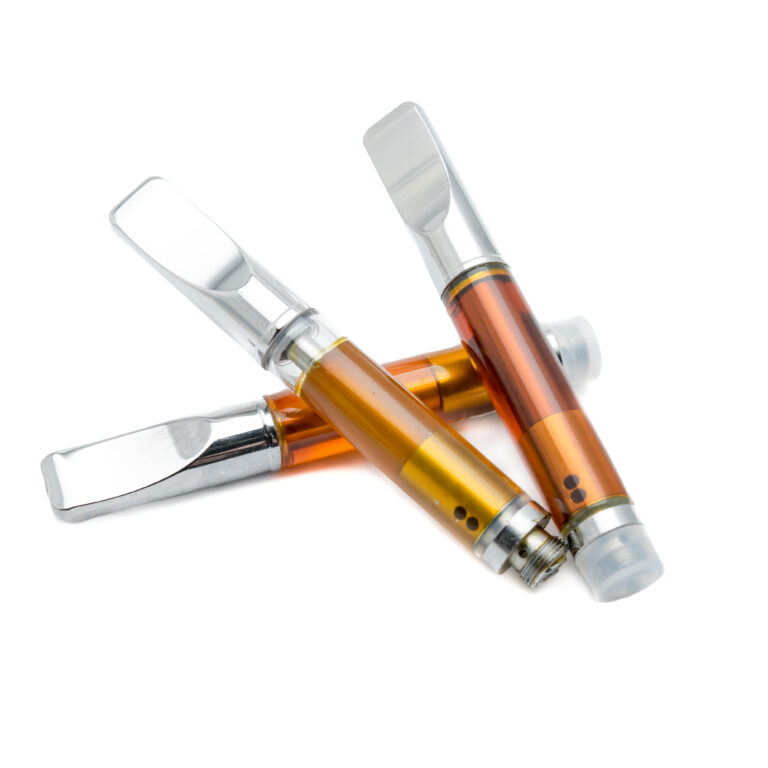 Photo by: Gina Coleman/Weedmaps
Photo by: Gina Coleman/WeedmapsImage lightbox

Whether you choose a disposable THCV vape or vape cartridge, this method produces effects quickly, much like smoking but without the smoke.
Note that it's hard to find a pure THCV extract or isolated THCV oils. Instead, your best bet is to find a more generic full-spectrum cannabis extract or oil that includes THCV in its cannabinoid profile.
High-THCV strains
Despite showing up in trace amounts in most strains, a handful of recognized strains have elevated levels of THCV. These strains typically include African sativa cultivars such as Durban Poison, Red Congolese, and other landraces.
Other high-THCV strains include:
Bottom line
THCV is a naturally occurring cannabinoid that is rare to find and produces even rarer effects. If you can find a high-THCV strain and a certificate of analysis to prove elevated levels of THCV, it's worth trying it to see if the cannabinoid can help with appetite suppression or anxiety relief. As with any cannabis product, exercise caution when you're trying something new for the first time. Try a small amount and slowly increase your dose until you find the perfect dose for your needs.
FAQ
Is THCV legal?
Without legislation specifically dictating the legal status of THCV, it is difficult to say. Technically, the list of federally banned substances does not include THCV, but products high in THCV may, by definition, be illegal at the federal level since they are, in effect, marijuana.
If you live in a weed-legal state, you'll be able to find products containing THCV quite easily, including strains with THCV. However, if you live in a place where cannabis is illegal at the state level, THCV products will be difficult to find and likely illegal to possess.
Is THCV safe?
That depends. THCV has shown promise as a therapeutic cannabinoid, but you may experience adverse effects if you consume a high dose, purchase an unregulated product with unsafe additives or solvents, are taking medications THCV might interact with, or are sensitive to cannabinoids in general. Talk to your doctor before starting any new cannabis regimen, and only shop from reputable dispensaries.
Is THCV a natural or synthetic cannabinoid?
THCV is a naturally occurring cannabinoid, though it only occurs in trace amounts in cannabis plants.
Does THCV show up on a drug test?
Potentially, THCV could show up on a drug test depending on the specific test and the levels of THCV in your body. Most drug tests are designed to detect THC, and because THCV is structurally different, standard THC tests may not detect THCV.
Is THCV the same as Delta-9 or Delta-8 THC?
No, THCV is not the same as Delta-9 or Delta-8 THC. Delta-9-THC (aka THC) is the most abundant and intoxicating compound found in cannabis; Delta-8-THC is similar to Delta-9-THC but with milder intoxicating effects and a slightly different molecular structure, leading to less potency and a reduced likelihood of anxiety and paranoia. THCV is chemically different from both, occurs in trace amounts, and typically offers milder effects.
This article was reviewed by Bonni Goldstein, MD, a physician specializing in cannabis medicine in Los Angeles, California, owner and medical director of CannaCenters, and medical advisor to Weedmaps.com.

